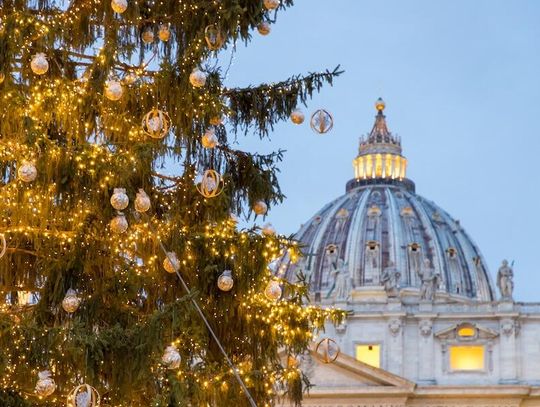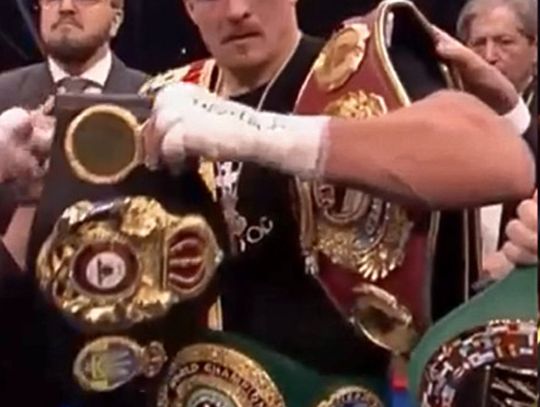Co to jest amerykański sen?
Wystarczająca ilość pieniędzy, więc możesz spędzić sobotę i niedzielę na oglądaniu ulubionej drużyny baseballa, ulubionego gracza w golfa czy drużyny koszykówki?
Obawiam się, że to jest to, w co wierzy wielu Amerykanów.
Kiedy moi rodzice po wojnie przybyli do Ameryki z obozu dla uchodźców w Niemczech, przybyli tutaj, ponieważ myśleli, że Ameryka jest ziemią możliwości, miejscem, gdzie ciężka praca procentuje bezpiecznym i dobrym życiem – życiem, w którym jesteś właścicielem domu i nie musisz cierpieć, by zdobyć jedzenie. To była duża część amerykańskiego snu dla moich rodziców, ale to nie wszystko, czym był dla nich ten sen.
Największą częścią amerykańskiego snu dla rodziców był fakt, że Ameryka jest tutaj po to, by pomagać innym ludziom. Ameryka była krajem, który przybył do Europy we wczesnych latach 40. XX wieku i pomógł zatrzymać zabijanie milionów ludzi przez Hitlera oraz nazistów.
Ameryka była narodem superbohaterów, którego celem było uczynienie świata lepszym miejscem.
Takie też było moje poczucie tego, czym był amerykański sen.
Część tego pochodziła od mojej mamy i taty, i od wszystkich innych imigrantów, którzy zamieszkiwali w mojej dzielnicy Humboldt Park.
Więcej nauczyłem się w collegu. Kiedy byłem na studiach podyplomowych, pracując nad doktoratem, skupiłem się na literaturze amerykańskiej. Przeczytałem rzeczy, które napisali purytanie, kiedy przybyli tu po raz pierwszy w XVII wieku. Czytałem, co Jefferson i Franklin oraz John Adams napisali o założeniu Ameryki i ich wizji świata przekształconego w XVIII wieku. Przeczytałem, co Whitman, Emerson i Thoreau powiedzieli o amerykańskich ideałach i marzeniach w XIX wieku – o tym, jak amerykańskie sny miały stać się marzeniami świata. Czytałem o gotowości Ameryki do pomocy światu podczas wszystkich wojen, które w XX wieku zabiły ponad sto milionów ludzi.
A teraz rozglądam się dookoła i zastanawiam się, co się stało z amerykańskim snem. Purytanie i założyciele Ameryki, XIX-wieczni pisarze i nasi przywódcy, tacy jak Woodrow Wilson i Franklin Delano Roosevelt, wszyscy postrzegali Amerykę jako swego rodzaju miasto na wzgórzu, latarnię, twórcę snów, który pomoże przekształcić świat w lepsze, milsze, bardziej ludzkie miejsce.
Więc co się stało?
Rozglądam się dookoła i widzę Amerykę, która wydaje się, że spuściła swój sen w toalecie.Republikanie atakują Demokratów za oszustwa w wyborach, wykorzystanie swojej pozycji do wzbogacenia się, bez poczucia moralności, z nadużyciem władzy rządowej, ignorując problemy reszty świata, a Demokraci oskarżają Republikanów dokładnie o to samo.
A co ludzie z tym robią?
Nic.
Siedzą w domu i oglądają ulubioną drużynę baseballa, koszykówki lub gracza w golfa. Amerykanie, zdaje się, zapomnieli, że kiedyś mieli marzenie o lepszym świecie.
The American Dream?
What is the American Dream?Enough money so you can spend Saturday and Sunday watching your favorite baseball team, golfer, basketball team?I’m afraid that’s what too many Americans believe.When my parents came to America from the Displaced Persons camps in Germany after the war, they came here because they believed that America was the land of opportunity, a place where hard work was rewarded with a secure and good life, a life where you owned your own home and didn’t have to struggle for food. That was a big part of the American Dream for my parents, but that wasn’t all that the American Dream was to them.A major part of the American Dream for my parents was also the idea that America was here to help other people. America was the country that had come over to Europe in the early 1940s and helped to stop Hitler and the Nazis from killing people by the millions.America was a superhero nation bent on making the world a better place.This was my sense of what the American Dream was also.Part of this came from my mom and dad and all the other immigrants who lived in my neighborhood near Humboldt Park.Part of it also came from what I learned in college. When I was in graduate school working on my doctorate, I focussed on American Literature. I read the stuff the Puritans wrote when they first came over here in the 1600s. I read what Jefferson and Franklin and John Adams wrote about the founding of America and their vision of a world transformed in the 1700s. I read what Whitman and Emerson and Thoreau said about American ideals and dreams in the 1800s, about how American Dreams would become the world’s dreams. I read about America’s willingness to help the world through all the wars that killed more than a hundred million people in the 1900s.And now I look around, and I wonder what happened to that American Dream. The puritans and the founders of America and the writers of the 19th century and our leaders like Woodrow Wilson and Franklin Delano Roosevelt all saw America as some kind of City on a Hill, some kind of beacon of light, some kind of dream maker that would help transform the world into a better, kinder, more human place.So what happened?Looking around, I see an America that seems to have flushed its dream down the toilet. The Republicans attack the Democrats for cheating in elections, using their positions to get wealthy, having no sense of morality, misusing governmental power, ignoring the problems of the rest of the world, and the Democrats accuse the Republicans of the exact same thing.And what are people doing about this?Nothing.They sit at home watching their favorite baseball team or basketball team or golfer.Americans seem to have forgotten that they once had a dream of a better world.
John Guzlowski
amerykański pisarz i poeta polskiego pochodzenia. Publikował w wielu pismach literackich, zarówno w USA, jak i za granicą, m.in. w „Writer’s Almanac”, „Akcent”, „Ontario Review” i „North American Review”. Jego wiersze i eseje opisujące przeżycia jego rodziców – robotników przymusowych w nazistowskich Niemczech oraz uchodźców wojennych, którzy emigrowali do Chicago – ukazały się we wspomnieniowym tomie pt. „Echoes of Tattered Tongues”. W 2017 roku książka ta zdobyła nagrodę poetycką im. Benjamina Franklina oraz nagrodę literacką Erica Hoffera za najbardziej prowokującą do myślenia książkę roku. Jest również autorem serii powieści kryminalnych o Hanku i Marvinie, których akcja toczy się w Chicago oraz powieści wojennej pt. „Retreat— A Love Story”. John Guzlowski jest emerytowanym profesorem Eastern Illinois University.-John Guzlowski's writing has been featured in Garrison Keillor’s Writer’s Almanac, Akcent, Ontario Review, North American Review, and other journals here and abroad. His poems and personal essays about his Polish parents’ experiences as slave laborers in Nazi Germany and refugees in Chicago appear in his memoir Echoes of Tattered Tongues. Echoes received the 2017 Benjamin Franklin Poetry Award and the Eric Hoffer Foundation's Montaigne Award for most thought-provoking book of the year. He is also the author of two Hank Purcell mysteries and the war novel Road of Bones. Guzlowski is a Professor Emeritus at Eastern Illinois University.










